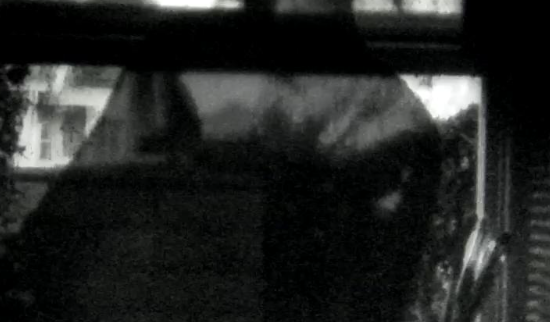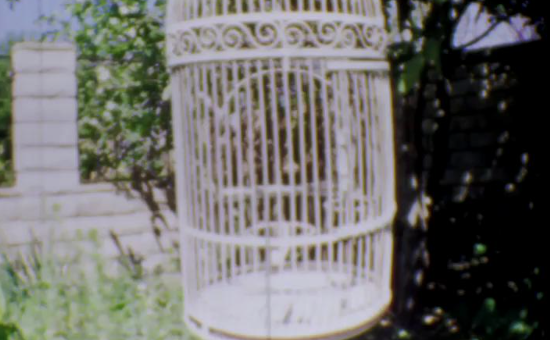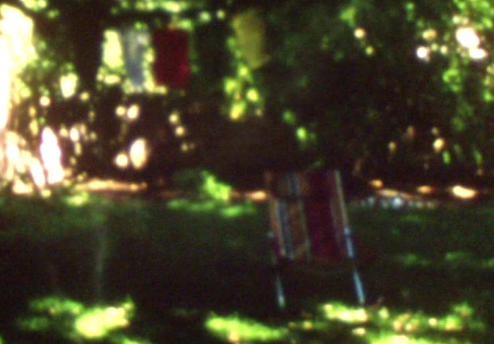Eva Doležalová is a Czech director, screenwriter, actress and producer. At the age of 10, she began acting in Czech films and theatrical productions as an actress, dancer and co-writer of plays. At 18, she moved to London to study acting at the Royal Academy of Dramatic Art. Eva worked as well on films with well-known directors such as Mike Figgis and Shane Black.
After completing her studies, she moved to Paris where she began to find her own artistic voice and realized her long-time dream of filmmaking, and started pursuing her writing and directing skills.
Eva moved to Los Angeles in January 2016, where she quickly completed her first film, Sound of Sun, starring Suki Waterhouse, Sean Penn, and herself, released by Nowness. The film was met with critical acclaim within the industry. Eva has since directed multiple shorts such as Carte Blanche, starring Dylan Sprouse, Suki Waterhouse, Jack Kilmer, Johnny Whitworth, for which she received an Audience Award at Mammoth Film Festival in February 2019.
Eva has two original feature films in development with one of them being made in 2019-2020.
An Interview with Eva Doležalová:

What are you currently working on?
Hi! Currently I have exciting news. My biggest short so far, Carte Blanche–led by Dylan Sprouse, Jack Kilmer, Suki Waterhouse–premiered on the opening night of Mammoth Film Festival in February 2019 in the official competition and received the Audience Award. It was my first festival and price ever. You can imagine how exciting that was for all of us.
Carte Blanche is a story of a young actor Gideon Blake (Dylan Sprouse), who is suddenly launched into stardom. At a significant Hollywood function he comes across a mysterious man from his past (Jack Kilmer), which pushes him to the brink of his sanity as he must decide which path in life he will follow. The film will be released by iTunes before the summer.
I’m also in the development of two feature films, with one of them named Mantis going into production in 2019/2020. And before the summer I’m directing an exciting 20 minute short named Maestro in the Hollywood Roosevelt Hotel, which is a story of a young female journalist and a world-praised conductor with an exceptional magnitude and god-like arrogance. It will be one of my most dialogue and character-driven pieces so far, and it loosely follows my relationship with my father.
Dazed also released my latest short, Butcher Boy, starring Jack Kilmer and Camille Rowe–a love fairytale for grown-ups, as I like to call it.
As a child you knew you wanted to be in the film—were there any films that were especially impactful in coming to this decision?
I remember having film marathons with my mum growing up. For the weekend we would rent five VHS cassettes and watch them while cuddling. Watching films became a ceremonial thing for me.
My mum is a huge fan of psychological thrillers so we would watch a lot of those. I think for some of them I was even too young, but mum loved hearing thoughts (of a child) on the film we just watched. I love her for that. I have one funny memory though, I remember watching Al Pacino for the first time and it made me want to do something in the cinema.
And later, 2001: A Space Odyssey by Stanley Kubrick has changed something in me. Seeing the visuals, soul and meaning made me want to do the same. All of Kubrick’s films have the same effect on me, and also just about every Michelangelo Antonioni’s film made me feel this urge to start directing.

Surrealism had a huge influence on you growing up. What drew you to this realm of art?
It’s interesting, because of my background. My family wasn’t into this form of art, but somehow, I found my way to it. My grandfather, from my father’s side, was one of the first Czechoslovakian esoteric writers, so maybe there’s something coming from there. Growing up I instantly fell in love with French New Wave such as Claude Chabrol, Robert Bresson, and Jean-Luc Godard. On the surrealist side I love Luis Buñuel, Jan Švankmajer and David Lynch, who all had a particular influence in my first films.
Later on, I’ve discovered Italian neorealism and finally the American classics which lead to exciting progress in my work. However, when I first started directing I just went for it, there was nothing that could stop me and even though I wasn’t as knowledgeable about the technical part as I am now, it didn’t matter, because it came from my heart and soul–which is the only way to create for me.
You started as an actress at a young age. What was your process of finding your place as a director rather than in front of the camera?
The difference for me is that behind the camera I feel like a fish in the water. Being in front of the camera has specific magic for me also, but when I’m behind the camera, it just feels as meant to be. My process of the transformation was fairly simple–I just did I felt was right and no one or nothing could have stopped me. I went after my dream like the Taurus that I am.
Along the way I had people trying to take advantage of a young filmmaker, but I’ve always managed to see through them. It takes time to build your crew, but I’ve been fortunate to have the people who work with me. Funny enough, I remember my mum telling me that even on my first set as a 10-year-old, I was telling the director what to do.
And apparently kept saying as a child (which I do not recall) that anyway I will end up in Holywood, which destiny eventually brought me to. I certainly felt from a young age that I was meant to create, and everything I did in my life before was leading up to directing. I’ve always been on the side and collaborating with the writers and directors like with Mike Figgis and somehow, they have always valued my opinion and ideas.

How did your experiences as a model shape your understanding of feminism?
It’s an interesting question because when you’re thrown to it at such a young age, you’re going with the flow of traveling, learning new languages and cultures on the go. I believe my sensibility of visual understanding is coming from those years of traveling and discovering myself and the world.
But to answer your question properly, it taught me that we all female must value and speak up for ourselves, because if we don’t, no one else will. Being female is to stand strong together and not against one another. In arts and everywhere else we should always support one another and continue to fight for our rights. Like Mary, Queen of Scots fought for her country–I just saw the film directed by Josie Rourke with Mary embodied by the marvelous Saoirse Ronan. The whole story, Mary’s determination and her bravery moved me profoundly.
Originally from Czech, you traveled internationally and eventually moved to Paris. How did moving through these places impact your creative development?
My understating of cinema is indeed international, which I always tap into in my films. Going from Japan to Greece to Cuba to Argentina had such a visual and motivating effect on me. So far in my films, there’s always been a form of transformation, which happened to me multiple times as I lived in many different countries. Like a chameleon, I was to adapt. I’ve always been in some kind of a metamorphose until I fully found myself. The crucial thing for me was to keep exploring those elements of me.
You’ve described that your short, Sound of Sun, was inspired by a dream. What was this dream?
This was in the part of my life when I was auditioning in Los Angeles as an actor, but the whole process made me feel like I was getting further away from who I was supposed to be. Always pretending to be someone else wasn’t after all something I wanted to do for the rest of my life.
And then I had a dream where I saw myself transforming into an artist I was meant to be. The day after, I saw Suki, my friend since we were 17 years old and we talked all night just about everything and I told her what I saw in my dream which became Sound of Sun.
I knew I was meant to take destiny into my own hands and create something that I firmly believed in. I understood that I want to create stories that people will relate to, or make them visit a universe they have no previous experience with.

What thoughts do you have on identifying as a female artist?
I am proud to be a female artist and it’s lovely to see how things have opened up over the past few years. I always say I’m glad to be alive and working during these times because this generation is changing the future and inspiring many young artists all around the world. I am a living example of no matter where you’re from you can make your dreams come true. You just have to believe in yourself and in what you do, because if you don’t, how someone else can?
How do you see women in the film industry changing in the coming years? Do you have a vision for what needs to change?
I think much has changed already, but going forward, we have to keep doing what we do, creating art and our place in the world. Gender hopefully won’t matter anymore when it comes to filmmaking, because we all have something different to say. If any person, no matter what gender they are , but they have something to say from their heart, nothing else matters in that case.
Female are leaders just like men are. Seeing some of my favorite female filmmakers doing more significant films has undoubtedly been a great inspiration to me. But how long did it take and what did it take? However, I think every revolution has to be radical to make people truly listen and understand and that’s what’s happening at the moment.

What dreams do you have for the progression of your work in the coming years?
I want to keep creating stories and visuals that people will be able to relate to, and with each of my films I want to tell something that I may be proud of. Mostly, I want to take people to fascinating places they’ve never been, which is what films did to me when I was growing up and without which I wouldn’t be the same person. I want to keep learning new things every day–as I am an inquisitive person–and keep getting better at my craft until I make my masterpiece as Alfonso Cuarón did with Roma.




No Comments